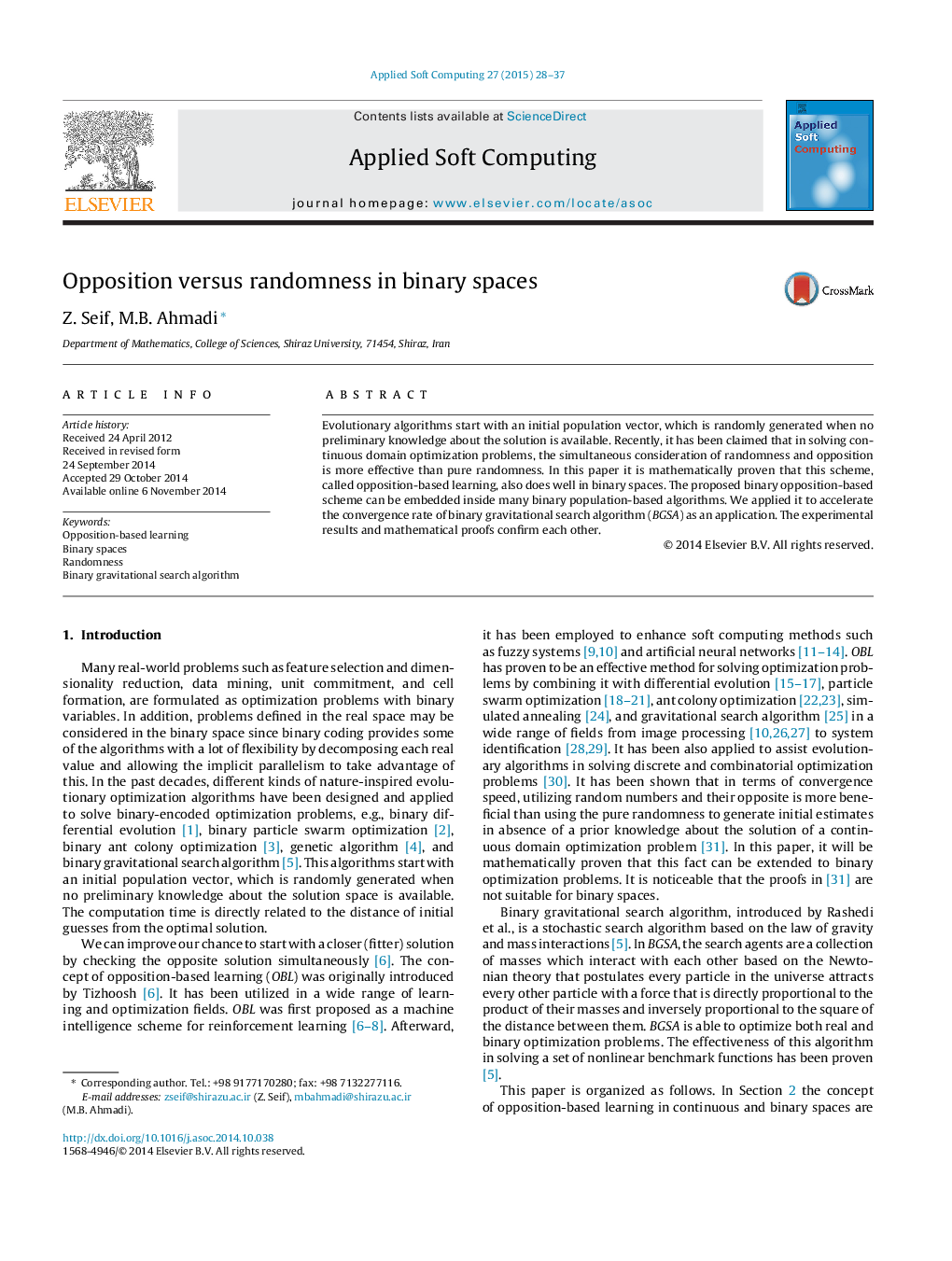| Article ID | Journal | Published Year | Pages | File Type |
|---|---|---|---|---|
| 6905309 | Applied Soft Computing | 2015 | 10 Pages |
Abstract
Evolutionary algorithms start with an initial population vector, which is randomly generated when no preliminary knowledge about the solution is available. Recently, it has been claimed that in solving continuous domain optimization problems, the simultaneous consideration of randomness and opposition is more effective than pure randomness. Here it is mathematically proven that this scheme, called opposition-based learning, also does well in binary spaces. The proposed binary opposition-based scheme can be embedded inside many binary population-based algorithms. We applied it to accelerate the convergence rate of Binary Gravitational Search Algorithm (BGSA) as an application. The experimental results and mathematical proofs confirm each other.
Related Topics
Physical Sciences and Engineering
Computer Science
Computer Science Applications
Authors
Z. Seif, M.B. Ahmadi,
